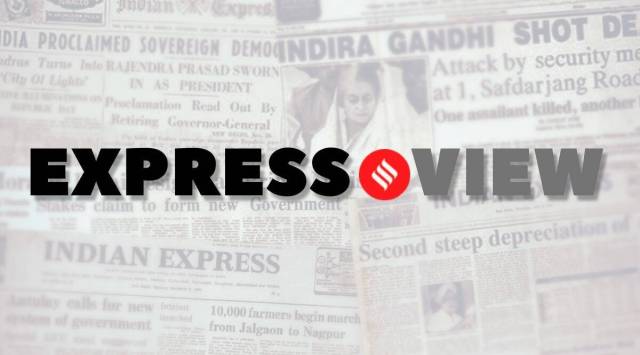
In the academic year that has just commenced in most parts of the country, secondary and senior secondary school students have been introduced to a revised set of social science textbooks. Curriculum reforms should be par for the course in history, sociology and political science — they are necessary to update the student with shifts in the polity and society. These changes should reflect new thinking in the disciplines and also remove past blind spots and blinkers. History textbooks have, for instance, been too big-empire-centric. They don’t have enough on the new historiography of different regions — the Northeast, for example — or on the archaeological finds that have changed understandings of the Indus Valley civilisation. Political science textbooks have yet to take proper note of the rise of, among other things, the new kinds of mobilisations being enabled and fostered by social media. But the latest revisions do not address such gaps and deficits. Instead, they excise content related to chapters in history that have acquired political overtones under the current regime — the Delhi Sultanate and the Mughal Empire. Another set of changes pertains to key fraught moments in Independent India’s political history — Mahatma Gandhi’s assassination, Emergency and Gujarat 2002. Yet another set of deletions could come in the way of the student engaging with important questions of caste, class and religion and their relationship to power.
An investigation by this newspaper last year had revealed that the pruning exercise was conducted without adequate consultation with experts. This is in marked contrast to the wide-ranging conversations undertaken by the same government before framing the National Education Policy 2020. The NCERT has justified the deletions as a part of its periodic “rationalisation” endeavours to reduce the curriculum load on students. But making knowledge more attractive and accessible hinges on several pedagogic interventions, including empowering the teacher. The NEP, too, underlines the importance of such an approach and lays store on developing the student’s critical faculties. The social scientist should be a key facilitator in this process by introducing the student to the complexities of social and political structures, with all their diversities, cleavages and inequities. This hasn’t always happened in India — even earlier textbook development committees have been fettered by government control over curricula. The recent revisions, however, invite the charge that not only does the government wish to escape unpalatable facts, but it also wants to ensure that the students do not engage with social and political realities with a critical attitude.